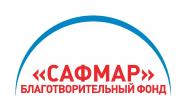In the modern world, we constantly come across and deal with different markets, whose operation can be based on a variety of different mechanisms and designs. Do Google, Apple, Facebook, Amazon and Microsoft compete between each other and how does it happen? How did game theory and auction theory help the development of the online advertising market? What findings from economic research can help applicants to enter a prestigious university, and states - to improve the efficiency of the education sector as a whole? And what can we learn about markets by analyzing liver donation? In this series of public lectures, professors from the world's leading universities talked about the design of a wide variety of markets and the most important and influential research in this area.
- 25 November, Thursday, 19:00 (GMT+3)
Digital Markets: What Is Wrong with Them and What We Can Do about It
The market power of the "Big Tech" companies - such as Google, Apple, Facebook, Amazon and Microsoft - is worrying citizens, commentators, regulators, and legislators all over the world. These companies have taken over dozens of other firms and allegedly engaged in anti-competitive practices of various sorts. We shall discuss why market forces alone are insufficient to restrain them, why competition agencies have found it difficult to investigate and discipline them, and what initiatives are being undertaken in different jurisdictions to deal with this issue.
 Massimo Motta is Research Professor at ICREA-Universitat Pompeu Fabra and at the Barcelona Graduate School of Economics. In 2013-2016, he served as Chief Competition Economist of the European Commission. He founded the GSE's Competition and Market Regulation Program and is Scientific Director of this Master. He received his PhD from Université Catholique de Louvain. His work, widely cited and influential, has been published in the leading international economic journals. His book on Competition Policy: Theory and Practice is the standard international reference on the economics of antitrust.
Massimo Motta is Research Professor at ICREA-Universitat Pompeu Fabra and at the Barcelona Graduate School of Economics. In 2013-2016, he served as Chief Competition Economist of the European Commission. He founded the GSE's Competition and Market Regulation Program and is Scientific Director of this Master. He received his PhD from Université Catholique de Louvain. His work, widely cited and influential, has been published in the leading international economic journals. His book on Competition Policy: Theory and Practice is the standard international reference on the economics of antitrust.
Moderator: NES Professor Mikhail Drugov
- 1 December, Wednesday, 19:00 (GMT+3)
Making It Easier to Get into School: Lessons from Market Design
In the last two decades, market design research has influenced how students apply and gain admissions into school in the United States and around the world. This talk will review some basic ideas of economists who focused on resource allocation problems applied to school admissions. We will then review some developments in the field, in the United States and elsewhere. Finally, we will turn to how making it easier to get into school allows us to learn more about what makes a school effective and how this information can ultimately improve the productivity of the education sector.

Parag Pathak is the Class of 1922 Professor of Economics at MIT, founding co-director of the NBER Working Group on Market Design, and founder of MIT's Blueprint Labs, a research laboratory which uses tools from market design and research design to produce rigorous evidence that can help decision-makers design and implement social policy. He received his PhD from Harvard University. In 2018, the American Economic Association awarded him the John Bates Clark Medal as the best American economist under age 40. His research has been supported by research grants from the National Science Foundation and other institutions.
Moderator: NES Professor Mikhail Drugov
- 9 December, Thursday, 19:00 (GMT+3)
Game Theory and Auction Design in Online Advertising: Past, Present, and Conjectures about the Future
Sponsored listings on search engines and online retailers are one of the most profitable sources of monetization on the Internet, generating hundreds of billions of dollars in annual revenues and supporting much of the web infrastructure. The key feature of sponsored listings, differentiating them from many other forms of advertising, is that they promote items that are directly relevant to a user's current activity, instead of being a distraction. Game theory and auction design have played a critical role in the development of sponsored listings, resulting in an active and productive two-way conversation between academic researchers and industry practitioners. In the lecture, we will briefly discuss the history of sponsored listings, cover their more recent evolution (both in terms of the expansion of the areas of their applicability and in terms of their features and design), and speculate about their potential future evolution.
 Michael Ostrovsky is the Fred H. Merrill Professor of Economics at the Stanford Graduate School of Business, a Co-Director of the NBER’s Working Group on Market Design and co-founder of Topsort, a venture-backed start-up that provides auction-based infrastructure and advertising solutions for online retailers and marketplaces. His research on advertising auctions has been recognized with the 2013 Prize of the Game Theory Society and the 2018 Test of Time Award of the ACM Special Interest Group on Economics and Computation. In addition to his academic work, he has collaborated with Google, Yahoo, LinkedIn, and Pinterest; advised a number of international telecommunications companies on their bidding strategies in complex auctions for electromagnetic spectrum; and has worked as an expert advisor on legal cases involving online advertising and antitrust-related issues. He received his PhD from Harvard University.
Michael Ostrovsky is the Fred H. Merrill Professor of Economics at the Stanford Graduate School of Business, a Co-Director of the NBER’s Working Group on Market Design and co-founder of Topsort, a venture-backed start-up that provides auction-based infrastructure and advertising solutions for online retailers and marketplaces. His research on advertising auctions has been recognized with the 2013 Prize of the Game Theory Society and the 2018 Test of Time Award of the ACM Special Interest Group on Economics and Computation. In addition to his academic work, he has collaborated with Google, Yahoo, LinkedIn, and Pinterest; advised a number of international telecommunications companies on their bidding strategies in complex auctions for electromagnetic spectrum; and has worked as an expert advisor on legal cases involving online advertising and antitrust-related issues. He received his PhD from Harvard University.
Moderator: NES Rector, Professor Ruben Enikolopov
- 16 December, Thursday, 19:00 (GMT+3)
Living Organ Exchange: What Lessons for Higher Market Efficiency Can We Learn
Organ transplantation saves lives. Economic research based on mechanism design provides for optimal organ exchange when donors have certain incompatibility. Liver exchange has been practiced in small numbers, mainly to overcome blood-type incompatibility between patients and their living donors. A donor can donate either his or her smaller left lobe or the larger right lobe, although the former option is safer. We can think of liver exchange as a market-design model with simpler two-way exchanges, and introduce an individually rational, efficient and incentive-compatible mechanism for such a market. During the lecture, we will discuss how different technical tools from economic theory can not only help increase the number of transplants by more than 30%, but can also increase the share of the safer left-lobe transplants.
 Haluk Ergin is an Associate Professor of Economics at University of California, Berkeley. He received his PhD from Princeton University and worked in MIT, Washington University in St.Louis and Duke University. His research in economics focuses on choice theory, game theory, and mechanism design and his works have been published in the top economic journals, including American Economic Review and Econometrica.
Haluk Ergin is an Associate Professor of Economics at University of California, Berkeley. He received his PhD from Princeton University and worked in MIT, Washington University in St.Louis and Duke University. His research in economics focuses on choice theory, game theory, and mechanism design and his works have been published in the top economic journals, including American Economic Review and Econometrica.
Moderator: NES Professor Sergei Izmalkov
***
The lectures were organized with the support of “SAFMAR” charitable foundation.

Partner:


